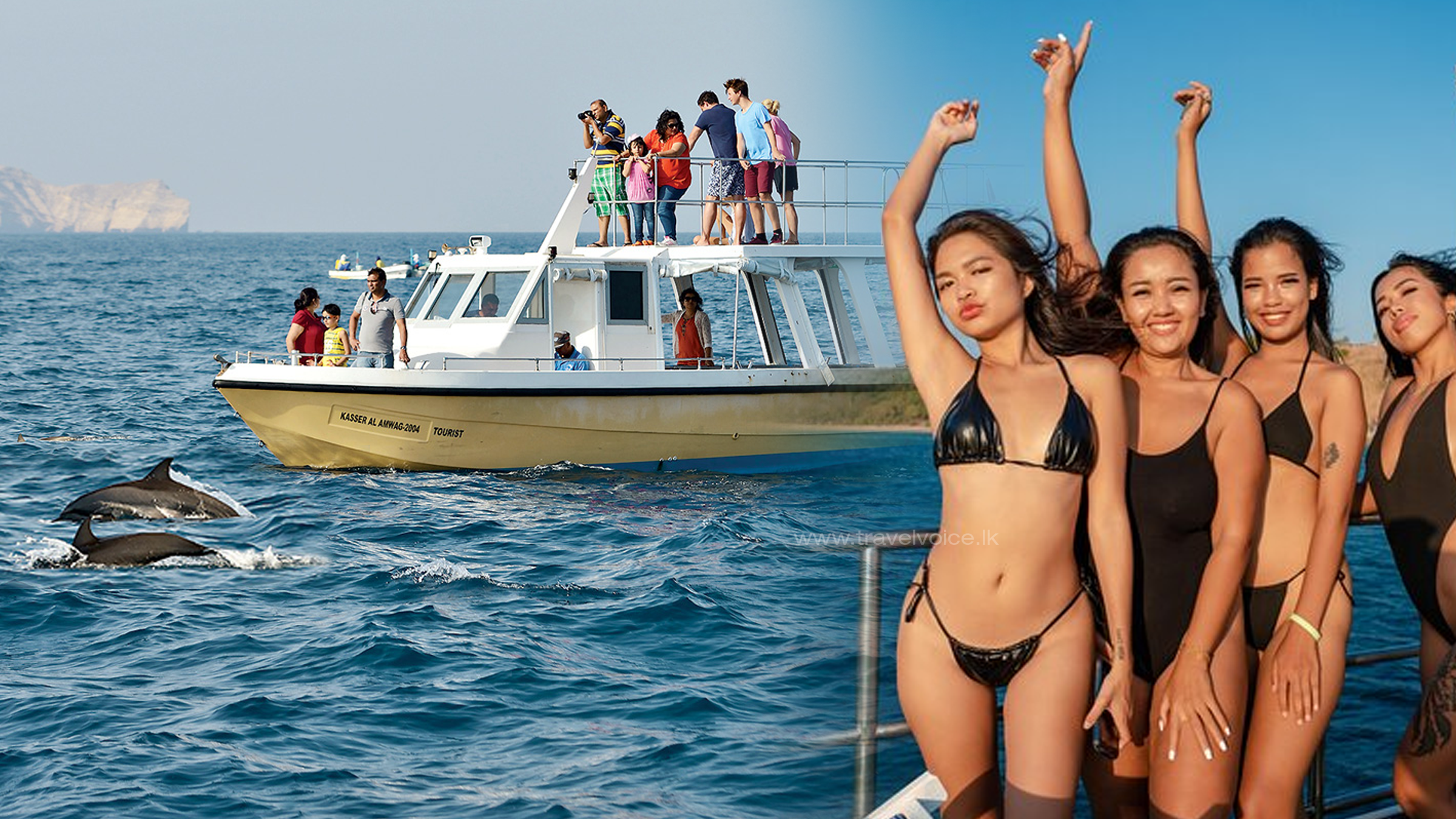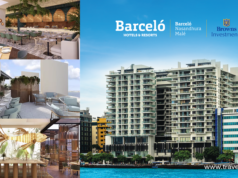- In conversation with the Chairman of Marine Industries Chambers Indhra Kaushal Rajapaksa
The Asian Development Bank (ADB) and Sri Lanka Tourism Development Authority (SLTDA) are to unveil the Marine Tourism Master Plan by the end of March. The Chamber of Marine Industries anticipates promoting boating as a lifestyle for Sri Lankans and making Sri Lanka a boat manufacturing hub.
Amidst Sri Lanka’s approach to reign in the marine tourism and marine industries, The Daily Morning Business had a conversation with the Chairman of Marine Industries, Indhra Kaushal Rajapaksa.
In conversation with The Daily Morning Business, Rajapaksa highlights that if the Government can loosen the strict laws and allow International yachtsmen to visit the country, maritime tourism will grow.Thus, not only foreign visitors but Sri Lankans do want to sail around the country but the country lacks the facilities to provide with especially harbours to anchor the boats, breakwater construction, boat security and places for them to facilitate with the shelter, food, water and other necessities. In addition, more and more regulations are stacked to get permission to sail around the country.
Rajapaksa shares his perspective on the chamber’s plans to develop small boat launch facilities, promote marina development, host boat exhibitions, and deal with industry related matters.The chamber is always optimistically driven to achieve their goals by interacting cordially with the Government. Moreover, the chamber is a member of The International Council of Marine Industry Associations (ICOMIA), providing exposure to many countries.
Following are excerpts from the interview:
When was the chamber formed?
We had an institute that represented the boat industry and was named the Boat Training Institute (BTI). Over time, they ceased operations, and we as a chamber assumed control since the boat industry has been recognised as one of the six critical sectors by the National Exports Strategy.They suggested setting up a chamber for the construction of boats.
The sri Lanka of Chamber of Marine Industry ensures to foster favourable business climate in Sri Lanka by creating and widening business opportunities in new markets for Sri Lankan Marine industry with dynamic internationalisation of the marine industry and active integration in the world economy by improving institutional and regulatory environment in the process of business and government dialogue which would ultimate provide advanced technology and services to the members.
How does the Chamber of Marine Industries see the Sri Lanka marine industry sector as an emerging export sector with high potential?
The Chamber encompasses all marine-related enterprises and services. In addition to helping the industry, we also interact with the Government whenever necessary in relation to policy issues.We expect a rise in exports since we are now resolving manufacturing, process, and exporting concerns one at a time, utilising the ministries’ cooperation where necessary. As a result,it facilitates the exporters to have smooth flow of their industry.
For instance, we are having trouble launching our boats at Beruwala, currently, the biggest challenge has been launching rather than manufacturing.
Without a launching pad, there is no way to launch the boats in Beruwala, since the boat builders industry is there. After a year of discussions with the Ministry of Industries, we are now extremely optimistic that the launching pad’s construction will get underway at the upcoming meeting with the Divisional Secretariat and all other stakeholders. Furthermore, the Ministry of Industries has already allotted 40 million rupees for the construction of the launching pad.
What specific products and services does the Sri Lanka marine industry sector offer to the international market?
We are a member of The International Council of Marine Industry Associations (ICOMIA) that gives exposure to more than 200 countries. Therefore, most of the countries are aware that Sri Lanka manufactures boats. Moreover, our chamber members take part in overseas boat shows. We encourage them to go and take part. Additionally, we make every effort to communicate with the Export Development Board (EDB) to get the maximum benefit for the participants.
Moreover, we had a boat show in October of last year (2023), along with a conference to which we invited foreign guests. We had almost 3,000 guests and 100 stalls showcasing different aspects of the marine industry. However, now people are highly encouraged to see when the next boat show is. We see a lot of demand.
What are the competitive advantages of the Sri Lanka marine industry sector compared to other countries?
Even though we currently lack manpower, we still have the best manpower. Nonetheless, we encourage young people and the school leavers to join us. They receive training at the company training centres. Furthermore, we now have our own technology developed. As a result, we possess complete expertise.
What are the challenges the marine industry is facing currently?
Even Though we are in the limelight of tourism. However, there are still challenges, like the lack of a proper marina to accommodate the boats, which are being discussed with the Fishing Harbour Corporation in order to make their fishing harbours to allow our yachts to dock in the absence of a marina.
A boost in marine tourism will be visible if we can relax all rigid regulations and open up for the international yachtsman to come in.These yachtsmen sail from one country to another.
However, if the regulations and everything is too stringent. Then they lose interest in visiting Sri Lanka. Because they claim that in order to enter Sri Lanka, they must first clear immigration and then visit another two or three institutes, which is a highly time-consuming process.
For instance, Thailand had started marine tourism with only about 10 to 15 yachts. Today, we have more than 1000 yachts.Sri Lanka is thus not too far from that. However, the Government must take the initiative and have the resolve to remove these restrictions and barriers.
What are your thoughts on the Government’s plan in developing Galle harbour for commercial and recreational activities?
For the third time, Galle harbour has issued requests for proposals (RFPs). There are numerous limitations and customs clearance problems in the Galle harbour. It won’t be successful even if they construct the greatest marina until they overcome those challenges. As long as we implement the same policies in Mirissa, such as allowing Sri Lankan boat builders to dock their vessels in Galle Harbour for sailing, we can turn this harbour—which already attracts a lot of foreign visitors—into a very lucrative and activity-based harbour.
How does the Chamber of Marine Industries view the current state of marine tourism in Sri Lanka?
Majority of our members work in manufacturing boats for tourism. As a result, we require both more boats and more places for them to anchor. Furthermore, many want to sail across the entire country, not just a few miles.That’s what’s missing in Sri Lanka. Therefore, people won’t enjoy sailing if we don’t provide these amenities. Thus, not only foreign visitors but Sri Lankans do want to sail around the country but the country lacks the facilities to provide with especially harbours to anchor the boats, breakwater construction, boat security and places for them to facilitate with the shelter, food, water and so on. These are the weaknesses that need to be fortified to improve the marine industry and tourism in Sri lanka.
The marine industry in Sri Lanka is fairly nascent and dominated by the fishing sector. There is vast potential to develop other sectors like leisure boating, offshore marine services, etc. The skills required are present. The industry needs attention from regulators.
What are the chamber’s priorities and focus areas for the future development of the marine industry in Sri Lanka?
We aim to develop launching facilities for small sized boats, push for marina development, organise boat shows and raise the issues pertaining to the sector.
The boat conference in Singapore will take place from 23-24 April.
Moreover, we aim to promote boating as a lifestyle in Sri Lanka and we observe Sri Lankans enjoying boating in their leisure time, that segment of society is growing. There will come a time when Sri Lankans will own boats of their own. We aim to determine the most efficient way to get there. Therefore, it will be the best opportunity for Sri Lankan boat manufacturers because we don’t have to keep on looking for foreigners when we have locals who love boating.This year, we want to promote boating as a lifestyle, and that is our goal.
We have the speed boats, the leisure small boats yachts, the catamarans, and motorised catamarans manufactured in Sri Lanka
Through the services we offer to the global market, our boat manufacturing in Sri Lanka is connected to buyers and sellers throughout the world. We link for integration. Therefore, Sri Lanka will become the boat manufacturing hub.
The chamber wants to be the voice of the industry and make Sri Lanka the hub of marine manufacturing.
For instance, Maldives is a highly sought-after destination for yachting. But they can only offer the sea. Yet, Sri Lanka is a tropical island.We have a huge amount of things to offer.The tropics, the jungles, the waterways, the freshwater lakes, and so on. If it is pitched properly, we have the potential to be the best place.
What are the key challenges and opportunities facing the marine industry in Sri Lanka?
The key challenges are infrastructure, quality standards and skilled manpower. The opportunities are exports, increasing marine tourism and employment in the marine sector.
How does the Chamber of Marine Industries support and promote the interests of its members in the marine sector?
The Chamber aims to identify and present the challenges of the sector to regulatory authorities in a collective manner.
How does the chamber engage with international partners and stakeholders to promote the interests of the SL industry?
We are a member of ICOMIA and also have an understanding with the National Boating Association of Maldives. We are looking at increasing such associations with similar organisations.











